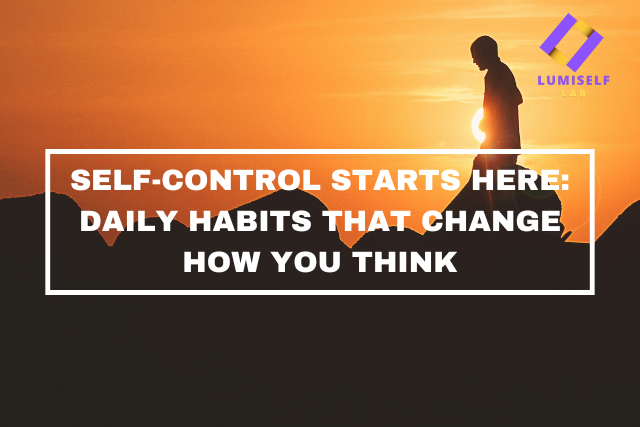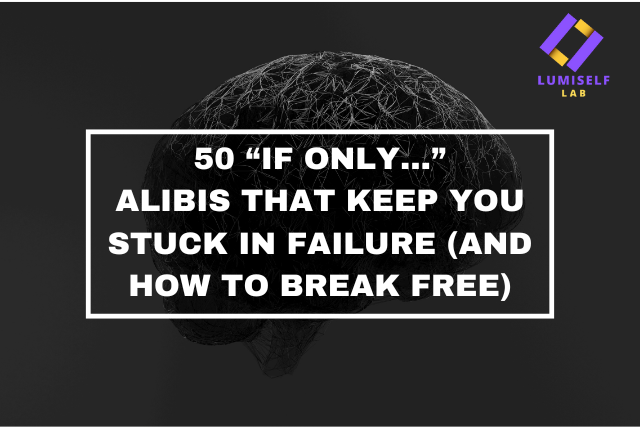We all have moments where we lose grip over our actions — whether it’s giving in to distractions, failing to build discipline, or just feeling stuck. The mind is the control tower of our life, and strengthening it can change everything — from how we work, to how we live. Building self-control doesn’t always require extreme effort. Sometimes, small, consistent actions make the biggest difference. Today, the Lumiself Lab brings you 7 practical ways to take control of your mind and build mental resilience.
1. Have an Aim in Life
As Robin Sharma said, “You cannot hit a target you cannot see.” Without a clear aim, you are easily distracted or influenced by external noise. To build laser-sharp focus:
- Write down everything you want to achieve (big or small).
- Select what matters most and feed those goals clearly into your mind.
- Break them down into actionable steps: daily, weekly, monthly, quarterly, and yearly goals.
This process gives you clarity, motivation, and a reason to say no to distractions.
2. Nurture a Jolly Mind
Studies have shown that laughter and joy trigger positive chemical reactions in the body and brain. A jolly mind promotes better energy, clearer focus, and stronger resilience. People who are always gloomy often lose drive and control over their lives.
Make it a habit to:
- Laugh regularly
- Surround yourself with uplifting people
- Watch or read something light-hearted
Laughter is truly medicine for the mind — especially when you’re on the edge of burnout.
3. Spend Time and Money for Others
Helping others is not just about kindness — it also shapes your mind. When you use your time or money for others, it boosts your emotional state, strengthens your social bonds, and creates a deep sense of meaning. These emotional shifts improve your ability to manage stress and maintain self-discipline.
4. Make Temptations Hard to Reach
If you want to avoid a distraction or break a habit — remove it from your environment.
For example:
- Want to avoid junk food? Don’t stock it at home.
Want to stop scrolling your phone? Leave it in another room while studying.
This trick works because the harder it is to reach something, the less likely you are to give in to the temptation.

5. Reward Yourself When You Succeed
Success feels sweeter when celebrated. Every time you control your impulses or follow through with a good habit, reward yourself — a piece of chocolate, a short break, or an episode of your favorite show.
But remember:
- Rewards should be simple and non-destructive.
- Avoid time-consuming or expensive rewards that harm your flow.
Celebrating progress creates a positive feedback loop.
6. Punish Yourself When You Fail
Discipline is built not just by celebrating wins, but by holding yourself accountable.
Example:
If you skip your workout, deny yourself a pleasure — like skipping two episodes of your favorite show.
This builds urgency, responsibility, and a clear boundary between action and consequence. It trains your mind to treat goals seriously.
7. Release Pressure Off Yourself
Mental and physical pressure are deeply connected. When you’re exhausted, your self-control decreases. That’s why it’s important to recharge. You can:
- Practice breathing exercises
- Try meditation
- Exercise for 20–30 minutes daily
- Spend quality time with family or friends
These activities help you recover, reset, and regain control of your thoughts and actions.
Conclusion
Building mental strength and self-control isn’t a one-time act — it’s a journey. It begins with self-awareness, followed by daily habits that rewire your mindset. Laugh more, give more, aim higher, and stay disciplined — because in the end, how you shape your mind determines how you shape your life. Stay consistent, and remember: even the smallest efforts can bring powerful change.



